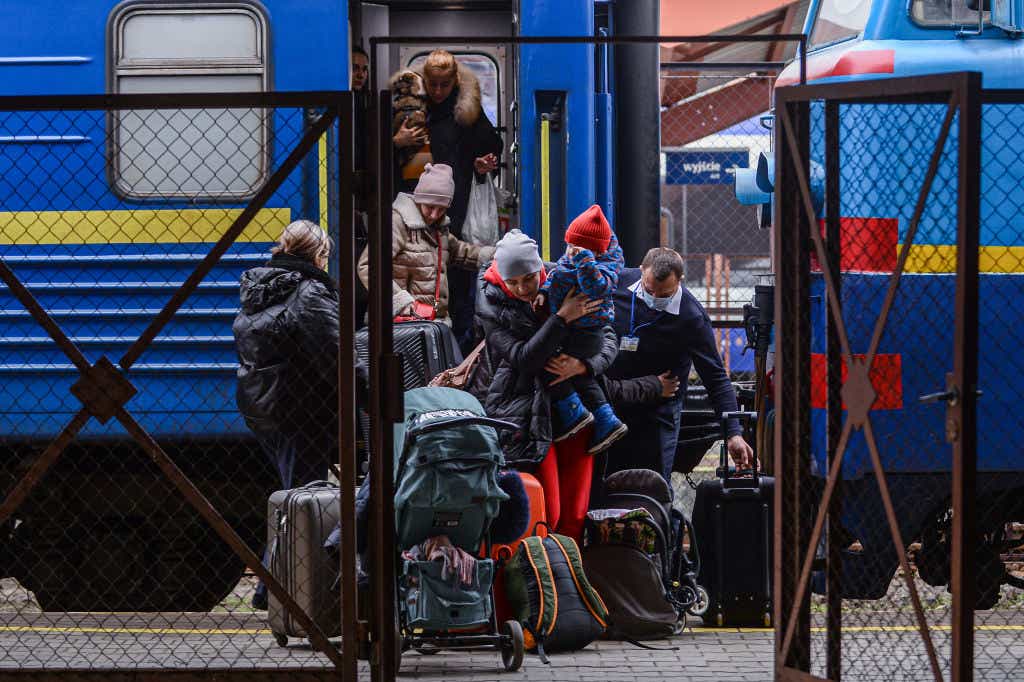Russia's violent invasion of Ukraine is causing immense pain that's currently reverberating around the world as thousands of Ukrainians flee their homes in search of safety.
To get a better understanding of what these people need and how we can help, Katie called up David Miliband, the CEO of the International Rescue Committee and a former foreign secretary for the government of the United Kingdom. As the head of an organization that works with more than 30 countries currently being affected by war around the globe, he's uniquely positioned to offer insight into this complicated geopolitical situation.
(And before we go any further, you can donate to the IRC's efforts in Ukraine right here. Any amount makes a difference!)
While it's impossible to know what comes next in this still-unfolding saga, Miliband says Ukraine is currently at "a fundamental fork in the road" after citizens there had begun to enjoy a more democratic society. But now, Russia's attacks will most likely result in one of two outcomes — either there will be a prolonged conflict between Russia and Ukraine or a short conflict followed by a Russian occupation of the country. Either scenario would lead to "humanitarian distress" throughout Ukraine.
Since the invasion began in earnest this week, Miliband says between 5,000 and 10,000 Ukrainians have crossed the border to find safe haven, and another 150,000 to 200,000 have fled their homes but haven't yet left the country. But if the conflict tips into a full-scale war, "you could be looking at literally millions of people" searching for safety, Miliband says, considering the total population of Ukraine is about 44 million.
Right now, most of those refugees are headed for Poland and Hungary, but Miliband is hopeful that other European nations will open their borders as well to help meet the demand.
But it's not just about those who are fleeing. Some Ukrainians are stuck in their country, and the IRC is committed to helping anyone who needs it. So what does that look like?
"We help people keep body and soul together — that's our mission," Miliband tells Katie. "We are a humanitarian organization that wants people to survive, recover, and gain control of their lives. Survive means healthcare, water, and cash. Recover means recovery from the trauma of sexual violence, for example, because we know that women and girls are especially at risk in these crises. And gaining control of their lives and their futures is all about education and employment."
All of these things are absolutely crucial for people who have been left with close to nothing.
"If you're a refugee, you come with what you can carry," Miliband says. "You come with your memories and what you can hold."
One of the great things about the IRC is that the group's vast experience with situations like this has taught its team what actually works, and that helps staff strategize for funneling donations to local organizations that have intimate knowledge of the most current needs.
"The key is to work with local community organizations," Miliband explains. "With any donations we get, we won't be sending in IRC staff. We're going to make sure that there are local community-based organizations who have experience with women's organizations, with disabled people's organizations, and with caring for kids to make sure that we're giving appropriate support in a way that's unobtrusive. We don't want to make the people who we're working with a target."
For more on the challenges facing Ukrainians now and the complex realities of the conflict, watch Katie's full conversation with David Miliband here:









